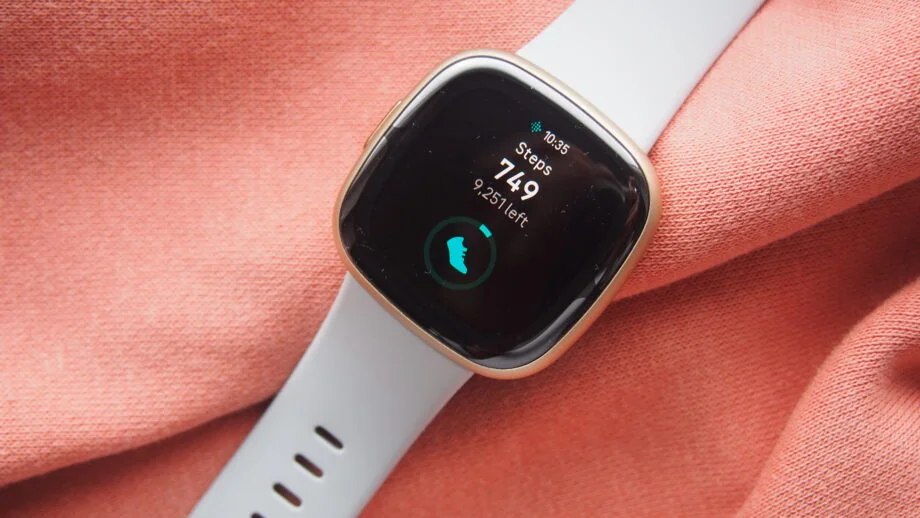You Snore? Your Fitbit Can Now Tell You
I’ve got to tell you, Fitbit has taken a huge leap forward with its latest feature that helps you monitor your sleep. If you’ve ever wondered if you’re one of those snorers, now you can find out—your Fitbit can tell you! The Snore & Noise Detect feature, available on the Fitbit Sense and Fitbit Versa 3, does more than just track your steps or heart rate. It gives you insights into your sleep environment like never before. Let me break down how this feature works and why it might just be what you need for a better night’s sleep.

How Fitbit’s Snore Detection Works
Monitoring Sound Intensity and Snoring Events
So, how exactly does this snore detection feature work? The built-in microphone on your Fitbit is the magic behind it all. When you wear your device to bed, it monitors the sound levels around you. Not only does it track if you’re snoring, but it also picks up other noises—like your partner’s snoring or that pesky traffic outside. It listens for snoring-specific sounds while also measuring the overall noise intensity.
This way, you get a clearer picture of how sound affects your sleep. By the morning, you’ll receive a Snore Report that details your snoring frequency and the general noise level in your bedroom.
Using the Microphone for Real-Time Monitoring
Once you’re asleep, your Fitbit automatically starts analyzing the sounds around you. It samples these sounds every few seconds, ensuring that it captures everything, from your snores to any other noises in your environment. I find it fascinating that the device can differentiate between your snoring and other ambient sounds. By morning, you’ll get insights into your snoring patterns along with graphs that show noise intensity levels.
This feature is especially useful if you’re trying to understand how well you sleep since frequent snoring can disrupt your sleep cycle.
Supported Fitbit Devices and Compatibility
Devices That Support the Snore Detection Feature
Right now, the Fitbit Sense and Fitbit Versa 3 are the lucky models equipped with this snore detection feature. If you own one of these devices, you’re in a great position to utilize this cool functionality.
App and Subscription Requirements
To access the snore detection feature, you’ll need the Fitbit app. But there’s a catch: it’s part of Fitbit’s Premium subscription service. So if you want to dive deep into your snoring patterns, you’ll have to subscribe. I get it; some folks might not love the idea of paying for extra features, but this subscription also opens up other advanced features like personalized health insights and detailed sleep analysis.
Health Insights: How Snore Detection Helps Improve Sleep
Tracking Snoring Patterns for Better Sleep Awareness
For many of us, snoring can be more than just an annoyance; it might indicate something more serious. Fitbit’s snore detection feature helps you track how often and how loudly you snore. This data can be eye-opening. If you discover that you snore frequently, it could signal that something is affecting your breathing during the night, and you might want to investigate further.
This awareness can prompt you to make changes in your sleep habits, whether it’s adjusting your sleep position or consulting a healthcare professional.
Potential Health Benefits Beyond Snoring Awareness
Let’s be real: snoring is not just a humorous quirk; it can be a symptom of sleep apnea, a condition that can disrupt your sleep quality and even lead to serious health issues. If your Fitbit detects consistent snoring, it might be worth having a conversation with your doctor. Early detection is key to addressing conditions like sleep apnea, and having this data at your fingertips could make a significant difference in your overall health.
Setting Up and Using Fitbit’s Snore Detection
Step-by-Step Guide to Enabling Snore Detection
Getting started with snore detection is pretty straightforward. Here’s a quick guide:
- Open the Fitbit app on your phone.
- Go to the Sleep page and look for the “Check for snoring” card.
- Tap it to learn more, and follow the instructions to enable the Snore & Noise Detect feature.
- Fitbit recommends having at least 40% battery before you hit the sack to ensure the feature runs smoothly throughout the night.
Once it’s enabled, you’ll wake up to a detailed Snore Report that breaks down your snoring patterns and the surrounding noise levels.
Managing Battery Usage While Using Snore Detection
It’s important to note that using this snore detection feature will drain your battery faster than usual. The microphone is continuously sampling sound, which can result in about 25% battery drain overnight. To make sure your Fitbit lasts, charge it to at least 40% before bedtime. If you find the battery drain bothersome, you can always disable the feature to conserve power.
Privacy and Data Collection Concerns
How Fitbit Manages Your Snoring Data
When it comes to privacy, Fitbit takes data protection seriously. All the information gathered through the Snore & Noise Detect feature is securely stored in your account. You can review, download, or delete this data whenever you want. If privacy is a major concern for you, it’s reassuring to know that Fitbit offers options to stop using the feature and clear any snoring data stored in the app.
Balancing Privacy with Health Tracking
While it might feel a bit odd to have your device listening to you while you sleep, Fitbit has clarified that the microphone only activates during sleep sessions, and they’ve implemented strong measures to safeguard your data. This balance between privacy and functionality is crucial in health tech, and it seems Fitbit has made strides in this area.
Pros and Cons of Fitbit’s Snore Detection Feature
Key Benefits for Sleep Monitoring
One of the main perks of Fitbit’s snore detection is the immediate awareness it provides. Whether you snore yourself or are sleeping in a noisy environment, this feature offers valuable insights to help you improve your sleep quality. Understanding your snoring patterns can also lead to early detection of issues like sleep apnea, potentially saving you from bigger health concerns in the long run.
Limitations and Drawbacks
On the flip side, the snore detection feature does come with some downsides. The increased battery usage can be a hassle, especially if you’re used to your device lasting multiple days on a single charge. Plus, needing a Fitbit Premium subscription might deter some users who don’t want to pay extra for enhanced features.
Conclusion: Is Fitbit’s Snore Detection Worth It?
In conclusion, Fitbit’s snore detection feature provides a new lens through which to view and improve your sleep. It offers a detailed look into your snoring habits, which can be a game-changer for those concerned about their sleep health.
While it has its trade-offs—like battery drain and the requirement for a subscription—the potential health benefits are significant. If you’re serious about understanding and improving your sleep, Fitbit’s Snore & Noise Detect feature is certainly worth a try. With a little awareness, you can take meaningful steps toward a better night’s sleep.





